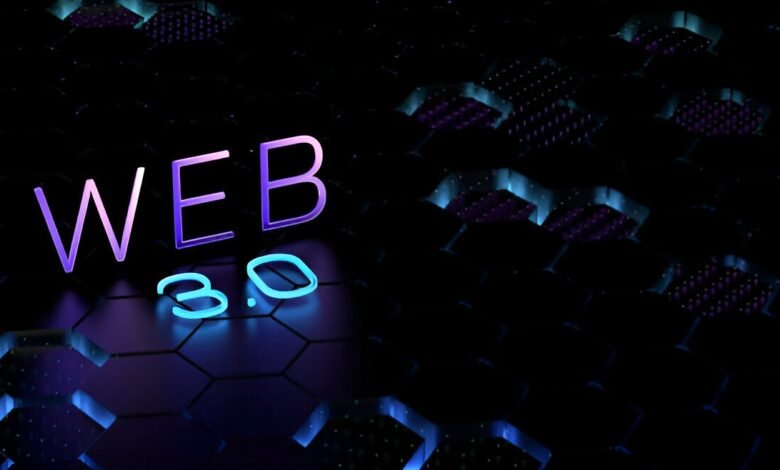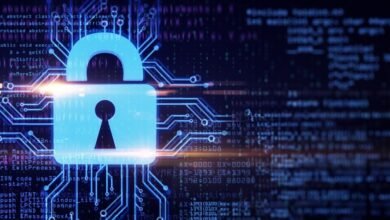How Web 3.0 is Changing the Internet for Pakistani Users
In this article, we will explore how Web 3.0 is changing the internet for Pakistani users, delving into its key features, benefits, and potential challenges.

The internet has come a long way since its inception, evolving through various stages that have significantly impacted how we interact with technology. From the static pages of Web 1.0 to the interactive platforms of Web 2.0, the digital landscape has continuously transformed to meet the growing demands of users. Now, we stand on the brink of another revolutionary shift with the advent of Web 3.0. This new phase of the internet promises to bring about profound changes, especially for users in countries like Pakistan, where the digital ecosystem is rapidly expanding. In this article, we will explore how Web 3.0 is changing the internet for Pakistani users, delving into its key features, benefits, and potential challenges.
Understanding Web 3.0: The Next Evolution of the Internet
Before diving into the specifics of how Web 3.0 is impacting Pakistani users, it’s essential to understand what Web 3.0 actually is. Often referred to as the “Semantic Web” or the “Decentralized Web,” Web 3.0 represents the next generation of internet technology. Unlike its predecessors, Web 3.0 is characterized by several key features:
- Decentralization: Web 3.0 aims to eliminate the centralized control of data by tech giants, giving users more control over their information.
- Semantic Understanding: The new web is designed to understand and interpret data contextually, making it more intelligent and user-friendly.
- Interoperability: Web 3.0 promotes seamless interaction between different platforms and services, breaking down the silos that exist in the current web.
- Blockchain Technology: The integration of blockchain ensures transparency, security, and trust in online transactions and interactions.
- Artificial Intelligence (AI): AI plays a crucial role in Web 3.0, enabling personalized experiences and smarter decision-making.
With these features, Web 3.0 is set to redefine how we interact with the internet, offering a more secure, transparent, and user-centric experience.
The Impact of Web 3.0 on Pakistani Users
Pakistan, with its rapidly growing internet penetration and tech-savvy population, is poised to benefit significantly from the transition to Web 3.0. Here are some of the key ways in which Web 3.0 is changing the internet for Pakistani users:
1. Enhanced Data Privacy and Security
One of the most significant advantages of Web 3.0 is its focus on decentralization, which directly addresses the growing concerns around data privacy and security. In Pakistan, where data breaches and cyber-attacks are becoming increasingly common, the decentralized nature of Web 3.0 offers a much-needed solution.
How It Works: In Web 3.0, data is stored on a decentralized network of nodes rather than centralized servers owned by tech giants. This means that users have more control over their personal information, reducing the risk of data breaches and unauthorized access.
Impact on Pakistani Users: For Pakistani users, this translates to greater peace of mind when browsing the internet, making online transactions, or sharing personal information. With blockchain technology ensuring transparency and security, users can trust that their data is safe from malicious actors.
2. Empowering Content Creators and Entrepreneurs
Web 3.0 is set to revolutionize the way content creators and entrepreneurs operate online. In Pakistan, where the gig economy and freelance market are booming, this is particularly significant.
How It Works: Web 3.0 enables the creation of decentralized platforms where content creators can directly monetize their work without intermediaries. Smart contracts, powered by blockchain technology, ensure that creators are fairly compensated for their contributions.
Impact on Pakistani Users: Pakistani content creators, such as bloggers, YouTubers, and artists, can benefit from these decentralized platforms by retaining more control over their content and earnings. Additionally, entrepreneurs can leverage Web 3.0 to create innovative business models, such as decentralized marketplaces, that cater to the local market.
3. Financial Inclusion through Decentralized Finance (DeFi)
Financial inclusion is a significant challenge in Pakistan, where a large portion of the population remains unbanked or underbanked. Web 3.0, with its emphasis on decentralized finance (DeFi), has the potential to bridge this gap.
How It Works: DeFi platforms operate on blockchain technology, allowing users to access financial services such as loans, savings, and investments without the need for traditional banks. These platforms are accessible to anyone with an internet connection, making them particularly valuable in regions with limited banking infrastructure.
Impact on Pakistani Users: For Pakistani users, DeFi offers an opportunity to participate in the global economy, access credit, and grow their wealth without relying on traditional financial institutions. This can be especially beneficial for small business owners and individuals in rural areas who have historically been excluded from the formal financial system.
4. Improved Access to Information and Services
Web 3.0’s semantic understanding capabilities can significantly enhance the way Pakistani users access information and services online. By understanding the context and intent behind user queries, Web 3.0 can deliver more relevant and accurate results.
How It Works: Web 3.0 uses AI and machine learning to interpret data contextually, allowing for more intelligent search engines and recommendation systems. This means that users can find information, products, and services that are tailored to their specific needs and preferences.
Impact on Pakistani Users: Pakistani users can benefit from more personalized and efficient online experiences. For example, students can access educational resources that are specifically relevant to their curriculum, while consumers can find products and services that match their preferences and budget.
5. Decentralized Social Media Platforms
Social media plays a crucial role in the lives of Pakistani users, but concerns over data privacy, censorship, and misinformation have led to growing dissatisfaction with centralized platforms. Web 3.0 offers a solution through decentralized social media networks.
How It Works: Decentralized social media platforms operate on blockchain technology, giving users full control over their data and content. These platforms are resistant to censorship and manipulation, ensuring a more transparent and democratic online environment.
Impact on Pakistani Users: Pakistani users can enjoy a more secure and authentic social media experience, free from the constraints of centralized platforms. This is particularly important in a country where social media is often used as a tool for activism and political expression.
6. Enhanced E-Commerce Experiences
E-commerce is rapidly growing in Pakistan, and Web 3.0 is set to take it to the next level. By leveraging blockchain technology and AI, Web 3.0 can create more secure, transparent, and personalized e-commerce experiences.
How It Works: Web 3.0 enables the creation of decentralized marketplaces where buyers and sellers can interact directly, without intermediaries. Smart contracts ensure that transactions are secure and transparent, while AI-powered recommendation systems provide personalized shopping experiences.
Impact on Pakistani Users: Pakistani consumers can benefit from a wider range of products, competitive pricing, and secure transactions. Additionally, local businesses can reach a global audience, boosting the country’s economy and creating new opportunities for growth.
7. Digital Identity and Authentication
Digital identity is a critical aspect of the online experience, and Web 3.0 offers innovative solutions for secure and verifiable digital identities.
How It Works: Web 3.0 uses blockchain technology to create decentralized identity systems that allow users to control their digital identities. These systems are secure, tamper-proof, and can be used across various platforms and services.
Impact on Pakistani Users: For Pakistani users, this means enhanced security and convenience when accessing online services. Whether it’s opening a bank account, applying for a job, or accessing government services, a decentralized digital identity can streamline the process and reduce the risk of identity theft.
8. Gaming and Virtual Reality (VR)
The gaming industry is booming in Pakistan, and Web 3.0 is set to revolutionize the way gamers interact with virtual worlds. With the integration of blockchain and VR, Web 3.0 offers immersive and decentralized gaming experiences.
How It Works: Web 3.0 enables the creation of decentralized gaming platforms where players can own, trade, and monetize in-game assets. Virtual reality (VR) technology enhances the gaming experience by creating immersive and interactive environments.
Impact on Pakistani Users: Pakistani gamers can benefit from more engaging and rewarding gaming experiences. Additionally, the ability to monetize in-game assets can create new income opportunities for gamers and developers alike.
Challenges and Considerations
While the potential benefits of Web 3.0 are immense, there are also challenges that need to be addressed to ensure a smooth transition for Pakistani users.
1. Digital Literacy and Awareness
For Web 3.0 to be fully embraced, there needs to be a significant focus on digital literacy and awareness. Many Pakistani users may not be familiar with the concepts of blockchain, decentralization, and smart contracts, which are integral to Web 3.0.
Solution: Educational initiatives, workshops, and online resources can help bridge the knowledge gap and empower users to make the most of Web 3.0 technologies.
2. Infrastructure and Connectivity
While internet penetration is growing in Pakistan, there are still areas with limited connectivity and outdated infrastructure. For Web 3.0 to reach its full potential, there needs to be a concerted effort to improve internet access and speed across the country.
Solution: Investment in broadband infrastructure, 5G technology, and affordable internet plans can help ensure that all Pakistani users can benefit from Web 3.0.
3. Regulatory Framework
The decentralized nature of Web 3.0 presents challenges for regulators, particularly in areas such as data privacy, taxation, and consumer protection. A clear and supportive regulatory framework is essential to foster innovation while protecting users.
Solution: Policymakers need to work closely with industry stakeholders to develop regulations that balance innovation with user protection. This includes creating guidelines for blockchain technology, smart contracts, and decentralized platforms.
4. Cybersecurity Threats
While Web 3.0 offers enhanced security features, it is not immune to cybersecurity threats. The decentralized nature of the web can make it challenging to detect and mitigate attacks.
Solution: Continuous investment in cybersecurity measures, including advanced threat detection systems and user education, is crucial to safeguarding Web 3.0 platforms and users.
Conclusion
Web 3.0 represents a paradigm shift in the way we interact with the internet, offering a more secure, transparent, and user-centric experience. For Pakistani users, the transition to Web 3.0 holds immense potential, from enhanced data privacy and financial inclusion to improved access to information and services. However, realizing this potential requires addressing challenges such as digital literacy, infrastructure, and regulatory frameworks.
As Pakistan continues to embrace digital transformation, the adoption of Web 3.0 technologies can play a pivotal role in driving economic growth, empowering individuals, and creating a more inclusive digital ecosystem. By staying informed and proactive, Pakistani users can position themselves to fully leverage the opportunities that Web 3.0 has to offer, ushering in a new era of internet innovation and connectivity.











